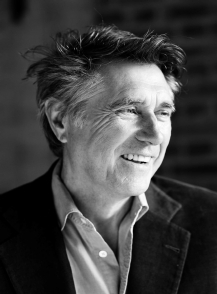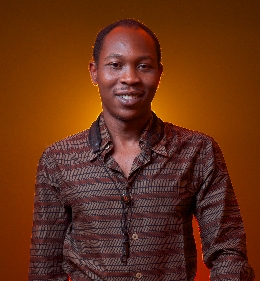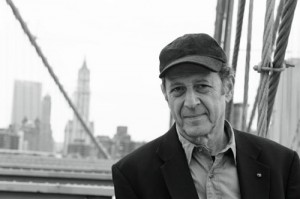Brian Eno
Interview: David Singleton
Robert Fripp is a guitarist best known as the driving force behind the mighty progressive rock band King Crimson. He has also collaborated with David Bowie (think of the heavenly sustained guitar in the song “Heroes”), Peter Gabriel, Daryl Hall, Andy Summers, and many others. And starting with his early recordings with Brian Eno, he also pioneered the tape looping system Frippertronics, creating ethereal soundscapes and ambient pieces. Fripp greatly expanded his audience during the pandemic in a series of quirky videos with his wife Toyah.
David Singleton is Fripp’s “reluctant manager”.
Well, of course, David Singleton is much more than this. He is also a producer for the music of King Crimson and for the recent acclaimed documentary “In the Court of the Crimson King”, an audio engineer, author of The Vicar Chronicles about the music business, co-founder of the Discipline Global Mobile music label, and a musician himself.
This interview was for a preview article for noozhawk.com for Fripp and Singleton’s talk “An Evening With Englishmen Abroad” at the New Vic Theatre in Santa Barbara on 3/1/24. It was done by phone on 2/14/24.
Interview: Mike Garson, Part 2
Pianist Mike Garson performed over one thousand concerts with David Bowie, more than any other person. He joined Bowie’s band for the Ziggy Stardust tour, and played on the Aladdin Sane, Diamond Dogs, and Young Americans albums. He re-entered Bowie’s orbit in the 1990’s, and played on Bowie albums including Outside, Earthling, and Reality. You can hear Garson’s diverse piano skills on Bowie songs ranging from “Aladdin Sane” featuring his avant-garde solo, to “Young Americans” and its Philly soul splendor, to the frenetic “Battle For Britain (The Letter)”
Garson has also recorded and toured with a number of other notable artists, including Nine Inch Nails and The Smashing Pumpkins, and has released a number of solo albums. He has composed over 5,000 pieces of music in virtually every imaginable style.
This interview with Mike Garson was for a preview article for noozhawk.com for the concert “Cancer: The Urgency of Now ” at the Lobero Theatre on 11/2/18. It was done by phone on 10/19/18. It complements a previous interview with Mike Garson, available here.
Interview: Bryan Ferry
Bryan Ferry has been making fantastic music for over four decades. It all started with Roxy Music’s 70’s art/glam rock period (“Virginia Plain”, “Do The Strand”, “Love is the Drug”), which evolved into the lushness of 1982’s Avalon album (“More Than This”, “Avalon”). Yes, Roxy Music is truly “For Your Pleasure”.
Along the way he also has had sexy solo hits (“Slave To Love”, “The Right Stuff”) and plenty of cool covers (“The ‘In’ Crowd”, “Jealous Guy”, “Let’s Stick Together”). And throughout, Ferry has been the epitome of the suave, stylish, and sophisticated rock star.
This interview was for a preview article for noozhawk.com for Ferry’s concert at the Santa Barbara Bowl on 8/19/17. It was done by email, with answers received on 8/4/17. (Simon Emmett photo)
Interview: Jim Coleman
Jim Coleman was part of the seminal New York City alt/noise/experimental/industrial rock band Cop Shoot Cop, contributing on sampler, keyboards, and mixing. The band released several albums in the 1990’s, including Ask Questions Later and Release on Interscope Records, the former with the minor alt-radio hit “$10 Bill”. They also were a well-regarded live act, and did shows with Sonic Youth, Iggy Pop, Red Hot Chili Peppers, and many others before breaking up in 1996.
Coleman’s musical journey has continued with scoring of films and TV shows, and recordings released as Phylr. In 2012, under his own name he released the album Trees, an organic, sonically rich set of movements that should appeal to fans of ambient electro-acoustic music.
Coleman answered the following questions by email, with answers received on 1/7/13.
Interview: Seun Kuti
Seun Kuti has inherited much from his father, the Afrobeat pioneer Fela Kuti: musical talent, charisma, a commanding stage presence, a burning desire for a better life for his Nigerian countrymen, and even his band Egypt 80. Along with the music of his brother Femi, which Seun heartily recommends, Seun (pronounced Shay-oon) is keeping Afrobeat – a rhythm-heavy, hypnotic mix of James Brown-style funk, jazz, Cuban and traditional West African music, featuring call-and-response vocals which are often about political topics – relevant in the 21st century. Seun’s second album, From Africa With Fury: Rise, was released last year, and he is currently touring the U.S., including an appearance at Coachella.
This interview, which was the basis of a preview article for his concert at UC Santa Barbara, was done by phone on 4/2/12. (photo credit: Kelechi Amadiobi)
Interview: Steve Reich
Steve Reich is a pioneering composer, who along with La Monte Young, Terry Riley, and Philip Glass is viewed as one of the most important figures in minimal music.
Reich’s early compositions “It’s Gonna Rain” (1965) and “Come Out” (1966) made use of tape loops which went out of phase with each other, an idea which he extended to live instrumentation with “Piano Phase” (1967) and “Violin Phase” (1967). He also explored the concept of “music as a gradual process” in pieces such as “Pendulum Music” (1968), in which microphones as pendula swing over a speaker, causing feedback.
His music took a new turn with “Drumming” (1971), inspired by a trip to Ghana. Steady pulse and rhythm became a dominant element of his compositions, including in the acclaimed “Music For 18 Musicians” (1976), widely viewed as one of his most important pieces.
Reich’s pieces began to incorporate themes from history and from his Jewish heritage with “Tehillim” (1981), which is the original Hebrew word for Psalms. Such themes continued with “Different Trains” (1988) which uses voices including those of Holocaust survivors, “The Cave” (1993) based on The Cave of the Patriarchs in Hebron which uses videos developed by his wife Beryl Korot, the opera “Three Tales” (1998-2002) about The Hindenberg, the nuclear tests at Bikini Atoll, and cloning, which also uses visuals by Korot, and “WTC 9/11” (2010) which uses voices related to the attacks on the World Trade Center on September 11, 2001.
Reich’s compositions have been highly influential in the world of classical music, and he has been called “America’s greatest living composer.” In the rock music world, his influence has been cited for artists including Brian Eno, King Crimson, The Residents, and Tortoise. Reich is currently working on a piece based on the music of Radiohead.
This interview was conducted by phone on 3/28/12.
Concert Review: David Byrne
Review of David Byrne (ex-Talking Heads) concert on 10/4/08 at Arlington Theatre in Santa Barbara






